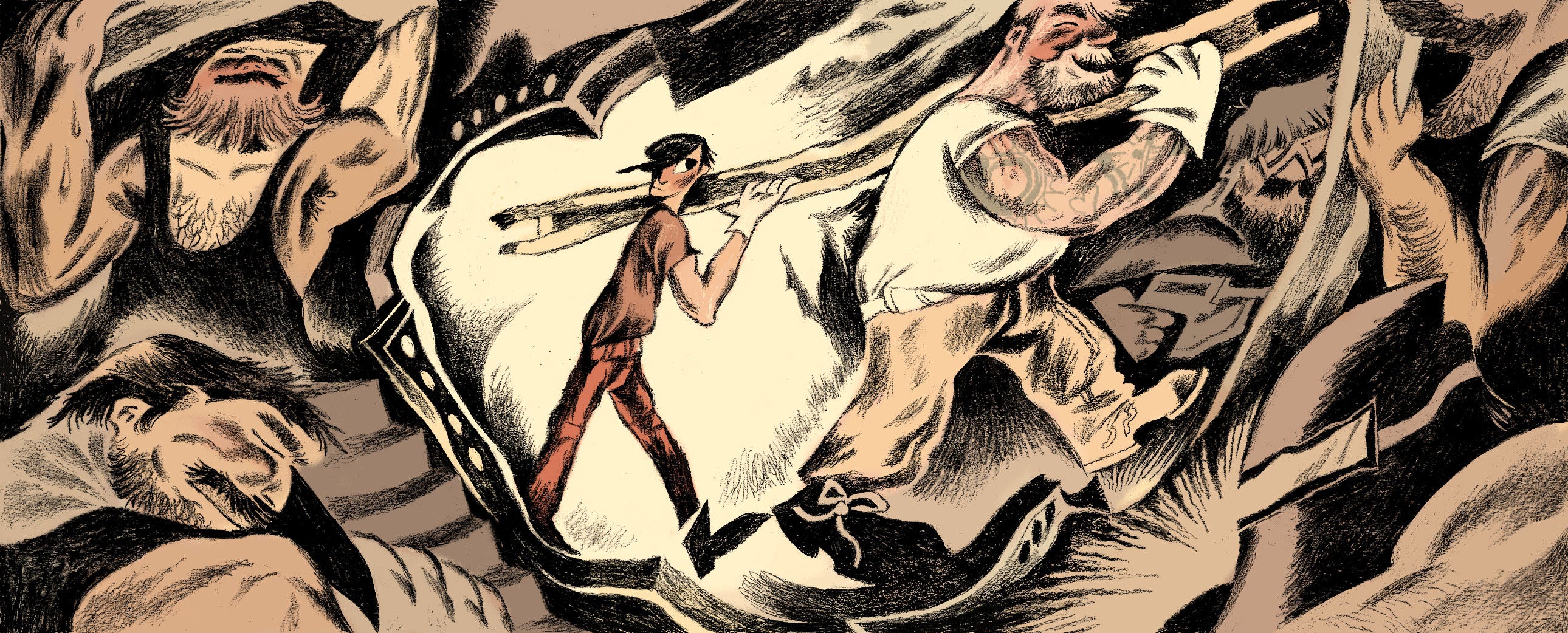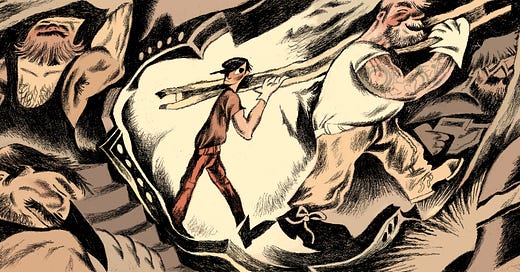How to Transition When Your Models of Masculinity Are Macho Biker Dudes
By night I was a queer butch artist. By day I worked with guys who were handy with a hammer and quick with a gay joke. Both worlds taught me about being a man.

Illustrations by Vaughn Parish
In 1999, I was living a double life: By night I was a queer butch artist on the verge of transitioning, enmeshed in a queer utopia; by day I worked up to 80 hours a week building elaborate sets alongside former outlaw biker dudes. The dirtier, louder and more challenging my work, the more I felt like the guy I was beneath the veneer of “butch woman” that the world saw.
At the fabrication shop, I learned to drive trucks and forklifts and operate industrial sewing machines that could rip off a finger. I became skilled in carpentry, welding and how to talk “dude.” I learned to use humor to make allies of the surliest guys. I learned the safest eats from the roach coach, how to replace the thermostat on my ancient pickup truck, and how to smoke cigarettes while ripping eight-foot plywood sheets on a table saw.
Stan rolled into the shop every Monday morning on a gush of air, a barrel of a man, chest-first and pockmarked, incommunicado until he slugged back his f…
Keep reading with a 7-day free trial
Subscribe to Narratively to keep reading this post and get 7 days of free access to the full post archives.



